Search Images
Browse Content (p. 950)
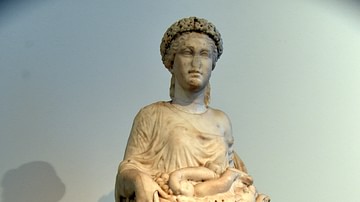
Image
Statuette of a Hora of Autumn
The body of the statuette apparently, found in a "vineyard near Vesuvius", is almost fully intact. The head, dating from antiquity, does not belong to it and was attached and amended by Bartolomeo Cavaceppi. After 1830 CE, the Hora was displayed...

Image
Statuette of Dionysus from Priene
The statuette of the young wine god with effeminate features bears heavy signs of scorching. It originates from a particularly large and wealthy Prienean house that was destroyed in the disaster around 135 BCE. It perhaps once adorned the...
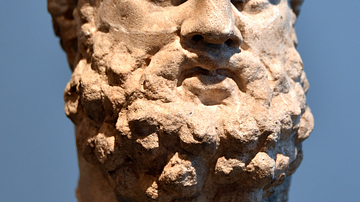
Image
Herakles as Pugilist
This smaller than life-size head came from a statue that represented the Greek hero Herakles as a pugilist. Indications for this include the puffy ears that also appear in images of sportsmen. Herakles was their patron deity; the statue may...
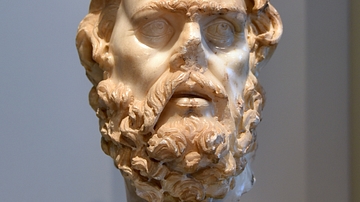
Image
Head of Marsyas
The head belongs to a statue from a group composition, which probably represented the musical contest between Apollo and the Silenus Marsyas. Marsyas' painted facial expression shows that he is starting to realize the full implication of...
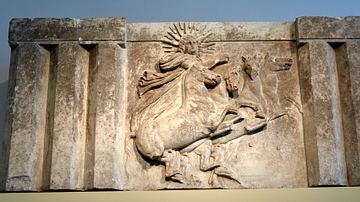
Image
Metope of Helios in Quadriga
This was part of a marble architrave. The row of sculpted metopes on the north side of the temple to the goddess of the city of Ilion, Athena, began with an image of the sun god's Quadriga rising out of the sea. Like the Parthenon in Athens...
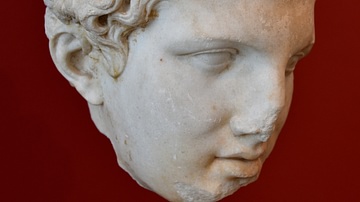
Image
Portrait of a Hellenistic Ruler
This partly preserved head of a young man with idealized facial features is understood to represent a Hellenistic ruler, due to the band in his curly hair. Certain classification is however not possible. Historically plausible suggestions...
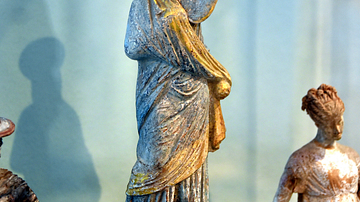
Image
Tanagra Figurine
This small terracotta figurine is part of the so-called "Tanagra Figurines", which represent wealthy middle-class women. These statuettes served as votive and funerary objects, carrying a symbolic meaning connected with the status and role...
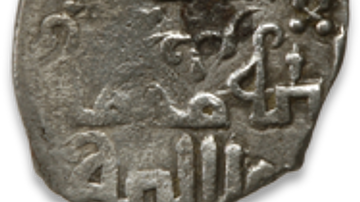
Image
Coin of the Mongol Regent Toregene
A silver coin minted during the reign of Toregene as regent of the Mongol Empire (r. 1241-1246 CE). (Private collection)

Image
Tolui & Sorghaghtani
A 14th century CE illustration of the Mongol Tolui (son of Genghis Khan) and his wife Sorghaghtani. (From 'Genghis Khan et l’Empire Mongol' by Jean-Paul Roux, collection “Découvertes Gallimard” (nº 422), série Histoire)

Image
Wife of Yuan Emperor Yingzong
A portrait of an unnamed wife of the Chinese emperor Yingzong of the Mongol Yuan Dynasty (r. 1320-1323).
National Palace Museum, Taipei.